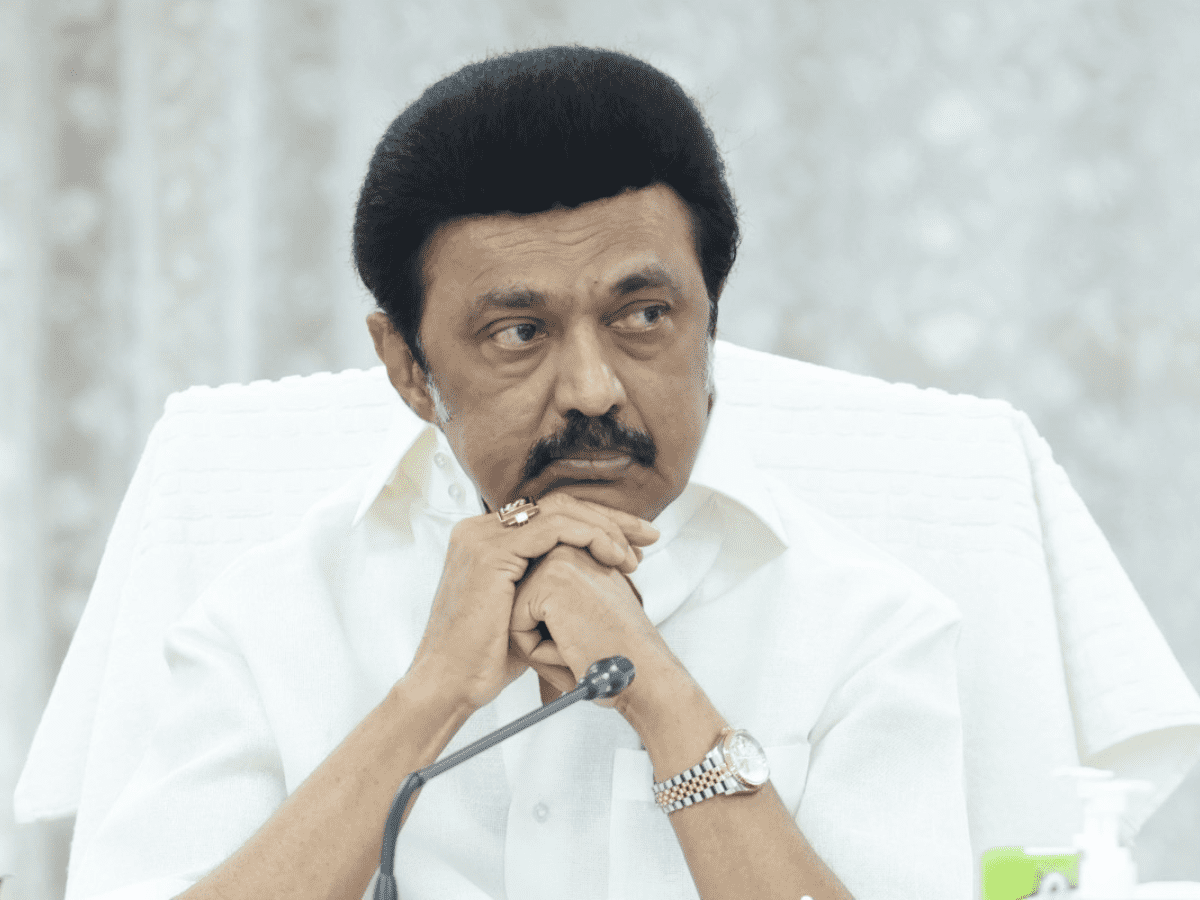
New Delhi: The Tamil Nadu government has told the Supreme Court there is nothing wrong in the acts of missionaries spreading Christianity as Article 25 of the Constitution guarantees every citizen the right to propagate his religion.
The M.K. Stalin government said, “Conversion of poor people to other religions by intimidating, threatening, deceivingly, luring through gifts and also by using black magic and superstition are not reported in Tamil Nadu.”
In an affidavit to a PIL filed by advocate Ashwini Kumar Upadhyay, the DMK government said: “As far as Tamil Nadu is concerned, there have been no incidents of forceful conversion reported in the past many years. The allegations raised by the petitioner…are alleged to have taken place only in certain tribal areas in Madhya Pradesh, Odisha and India’s Hindi belt and therefore even according to the petitioner, it does not apply to the State of Tamil Nadu”.
The state government contended that Article 25 of the Constitution guarantees every citizen the right to propagate his religion, therefore the acts of missionaries spreading Christianity by itself cannot be seen as something against law. “But if their act of spreading their religion is against public order, morality and health and to the other provisions of Part III of the Constitution it has to be viewed seriously,” it said.
The DMK government contended that the citizens are at liberty to choose the religion they want to follow.
“The Constitution does not give a fundamental right to any person to turn another man into one’s own religion. But it gives a right to any person to propagate his religion. Likewise, the Constitution does not prevent any person from getting converted to the religion of his choice. The citizens of the country should be allowed freely to choose their religion and it would not be appropriate for the government to put spokes to their personal belief and privacy,” it said.
The state government submitted that the petitioner has made sweeping allegations against it saying that the government was determined to remove the conversion angle from the case of Lavanya’s suspicious death.
“The petitioner, who belongs to the Bharatiya Janata Party, has attempted to convert the court proceeding into a political fight by bringing in ideological politics into the matter. All the allegations made against the Government of Tamil Nadu are politically motivated. There are no instances of forceful conversion of religion reported in Tamil Nadu…,” it said.
The DMK government contended that the state shall have the responsibility to take measures against persons who deliberately and maliciously intend to outrage the religious feelings of any class by insulting their religion or religious beliefs.
The state government said: “One of the rights guaranteed by the Indian Constitution is the right to Freedom of Religion. As a secular nation, every citizen of India has the right to freedom of religion, i.e., the right to follow any religion.”
It said, “As one can find so many religions being practiced in India, the Constitution guarantees to every citizen the liberty to follow the religion of their choice. According to this fundamental right, every citizen has the opportunity to practice and spread his religion peacefully. The right to have faith in a particular religion can be traced under Article 21 of the Constitution and it is an inviolable right”.
Many states have passed their own version of the anti-conversion laws and some are still in existence. The Tamil Nadu government said the anti-conversion laws are prone to misuse against minorities and there is no data on convictions under the various anti conversions’ laws of the states.
“In 2002, the State of Tamil Nadu passed the Tamil Nadu Prohibition of Forcible Conversion of Religion Act, 2002 (Tamil Nadu Act 56 of 2002). However, the same was repealed by the Tamil Nadu Prohibition of Forcible Conversion of Religion (Repeal) Act, 2006 (Tamil Nadu Act 10 of 2006) due to popular opposition. In the year 2003, the State of Gujarat passed the Gujarat Freedom of Religion Act, 2003. In 2017 and 2018, Jharkhand and Uttarakhand States passed anti-conversion laws, respectively. In 2021, the Karnataka State Legislative Assembly passed the Karnataka Protection of Right to freedom of religion bill”, said the state government.
In connection with Upadhyay’s plea, the state government said: “The prayers sought by the petitioner in the present writ petition do not only attack a specific community with intentions to divide the society through hate, fuelling religious intolerance in the country, bringing disharmony in the society.”
Upadhyay moved the apex court seeking a direction to declare that fraudulent religious conversion and religious conversion by intimidation, threatening, and deceivingly luring through gifts and monetary benefits offends Articles 14, 21 and 25.
